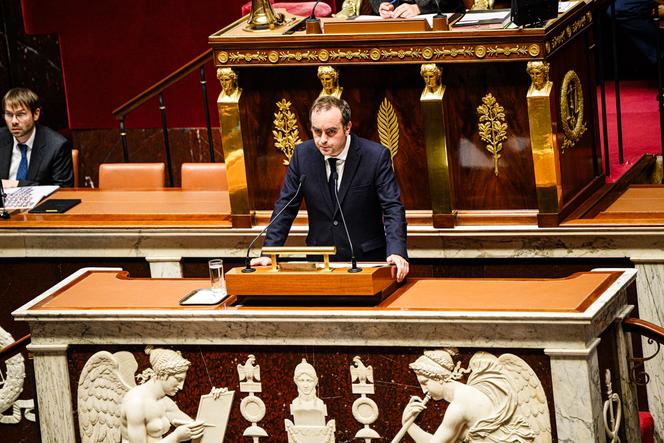


France's Prime Minister Sébastien Lecornu said Tuesday, October 14, he would back suspending an unpopular reform that raised the age of retirement from 62 to 64 until presidential polls in 2027. "I will propose to Parliament this autumn that we suspend the 2023 pension reform until the presidential election. There will be no increase in the retirement age from now until January 2028," he promised lawmakers during his policy speech, responding to a key request from the Socialists, a group crucial to his cabinet's survival.
On Tuesday, Lecornu's new government approved a draft budget in a meeting with President Emmanuel Macron, who warned that any vote to topple the cabinet would force him to dissolve the Assemblée Nationale and call fresh elections. Macron warned during the meeting that any no-confidence motion would be tantamount to a "dissolution motion," government spokeswoman Maud Bregeon said.
France, the eurozone's second-largest economy, is in a political crisis that has spooked markets and raised concern about its minority government's ability to govern and pass measures to ease the country's debt burden. After a week of drama that saw Lecornu resign only to be re-appointed days later, the 39-year-old prime minister has urged his new cabinet to do everything to help France overcome the deadlock.
The hard-left La France Insoumise party and far-right Rassemblement National (RN) have already filed motions to topple Lecornu's new cabinet. The Socialists had said they would not back the motions, giving them little chance of succeeding, but would file their own motion if Lecornu did not immediately suspend the reform that raised the retirement age from 62 to 64.
The reform, which the government forced through Parliament without a vote in 2023, sparked months of angry protests. The winner of this year's Nobel Prize in economics and a former Macron advisor, Philippe Aghion, said Tuesday he thought suspending the reform would avert the "danger" of the far right taking power in the case of new parliamentary elections.
In a bid to gain opposition backing, Lecornu earlier this month promised not to use the constitutional measure to force through bills. But Lecornu, the seventh prime minister of Macron's presidency, has also said his priority was to get a budget approved by the end of the year.
Lecornu's two immediate predecessors were ousted in a standoff over an austerity budget, and his immediate task is to put together a 2026 budget plan. The new cabinet is expected to present a draft budget on Tuesday that aims for a deficit below 5% of GDP, according to government spokesperson Bregeon. The government must give parliament the constitutionally required 70 days to scrutinize the plan before the end of the year.
Macron has come under unprecedented pressure in recent days. Some opposition leaders are urging him to call snap elections or resign, and even key allies such as former prime minister Edouard Philippe have distanced themselves from the 47-year-old president.
Macron sought to shift all responsibility for the turmoil to political rivals as he travelled to Egypt on Monday, saying those who had sought to destabilize Lecornu were "solely responsible for this chaos."
"It is everyone's duty to work towards stability," he said.
France has been locked in political deadlock ever since Macron gambled on snap elections in the summer last year. He had hoped the polls would consolidate his power, but they instead ended up in a hung parliament, with the RN gaining ground and becoming the chamber's single largest party.
